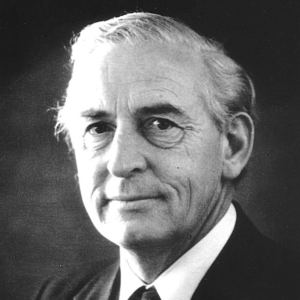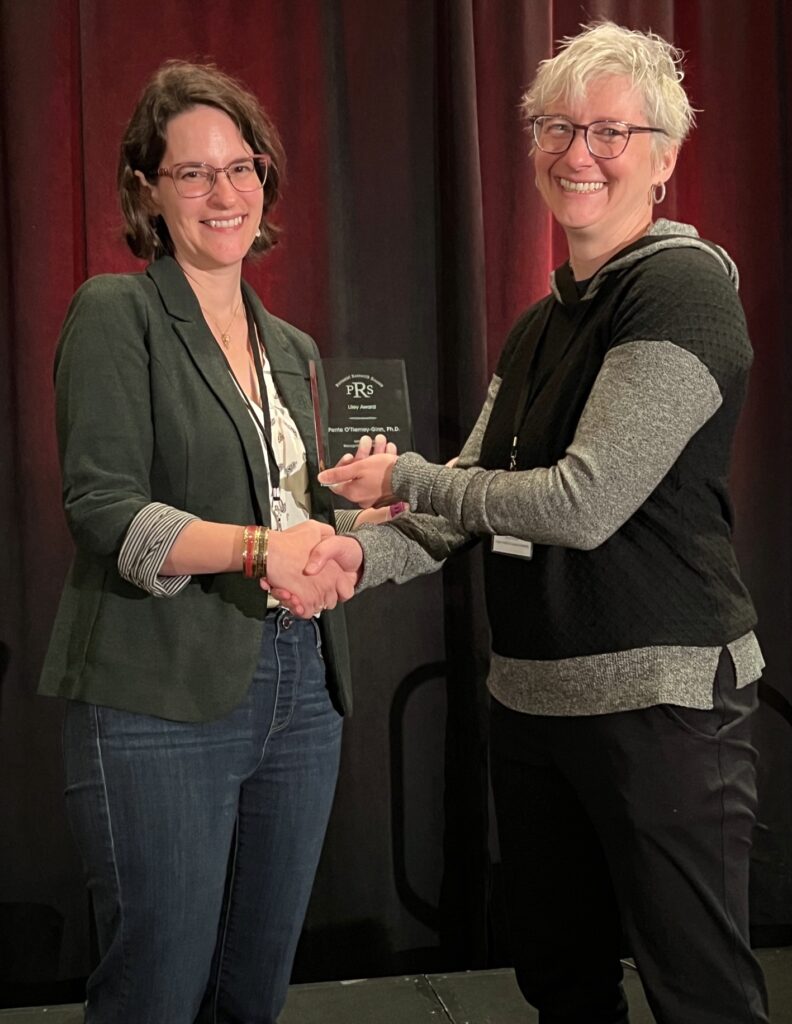Sir Albert William Liley,
KCMG FRSNZ
(1929-1983)
New Zealand Physician Scientist

PHOTO REPRODUCED BY KIND PERMISSION OF THE FACULTY OF MEDICAL AND HEALTH SCIENCES OBSTETRICS AND GYNECOLOGY DEPARTMENTAL LIBRARY, UNIVERSITY OF AUCKLAND, NEW ZEALAND.
Recognizing Outstanding Contributions and Achievements in Perinatal Research
The Liley award is the society’s own award and is given each year to recognize outstanding contributions and achievements in the area of perinatal research. In the past, this has been based on overall advancement of the field and often reflects more prolonged career success rather than a single cutting edge study that the named lectureships otherwise tend to support. Intentionally there is no restriction on the precise topic or recipient to give the current President and council the maximum flexibility, and it has been awarded to both members and nonmembers of the society.
Origins of the award
The Liley award and lectureship was established in 1985 to recognize the world-renowned perinatal researcher Sir (Albert) William Liley KCMG FRSNZ; (1929 – 1983). Sir William was a New Zealand physician-scientist who specialized in fetal research in utero and was the first to overcome the problems of rhesus incompatibility in human fetal transfusions. Of note, the first recipient was Mont Liggins, another highly prominent clinician-scientist who was responsible for the modern-day use of steroids to treat lung prematurity.
Current Liley Award Recipient
2023 Perrie O’Tierney-Ginn, PhD
“Metabolic Drivers of Neurodevelopment – Role for the Placenta-Brain Lipid Axis”

Past Award Recipients
| Year | Recipient | Lectureship Title |
|---|---|---|
| 2022 | Yoel Sadovsky, MD | New Insights into Placental Fat Control |
| 2021 | Rebecca Simmons, MD | Perinatal Research: Life in the Fast Lane, Life in the Slow Lane |
| 2019 | Candice Fike, MD | Towards effective therapies for neonatal pulmonary hypertension: A bench to bedside Journey. Treatments for infants with pulmonary hypertension associated with chronic cardiopulmonary disorders remain inadequate. |
| 2018 | Jane Harding, BSc, MBChB, FRACP, DPhil | Glucose levels in babies: Too high-too low-too variable – and does it matter? |
| 2017 | Maureen Keller-Wood, PhD and Charles Wood, PhD | Using Systems Biology to Understand Maternal-Fetal Physiology. |
| 2016 | Kent Thornburg, PhD | Women Placentas Babies: New Insights on the Origins of Human Disease |
| 2015 | John A Widness, MD | Multi-Density Red Blood Cell Labeling with Biotin: A Pretty Cool-Safe-Versatile Method for Measuring Red Cell Volume & Survival in Mammals |
| 2014 | Jennifer House, PhD | Challenges in Perinatal Research: Creating a Global Scientific Agenda |
| 2013 | Sandra T Davidge, PhD, FRSC, FCAHS | Are There Interventions to Rescue a Fetal Programmed Phenotype? |
| 2012 | Lubo Zhang, PhD | Developmental Programming of Ischemic-Sensitive Phenotype in the Heart |
| 2011 | Kurt Albertine, PhD | Epigenetic Platform Underlying Developmental and Adult Consequences of Bronchopulmonary Dysplasia |
| 2010 | Kirk Conrad, MD | Unveiling the Vasodilatory Actions and Mechanisms of Relaxin |
| 2009 | Leslie Myatt, PhD, FRCOG | Orchestrator or Cipher: the Placenta in Fetal Programming |
| 2008 | James M. Roberts, MD | Whither Whither Toxaemia? (Whither Toxaemia revisited) |
| 2007 | Susan Fisher, PhD | The Human Placenta: A New Source of Hematopoietic Precursors |
| 2006 | David Haig, MD | Evolution of Childhood |
| 2005 | Lowell Davis, MD | Anemia and Vascular Growth in the Fetal Heart |
| 2004 | Philip N. Baker, MD | Pre-eclampsia: Time to Translate Bench to Bedside |
| 2003 | Lindsey Allan, MD, FRCP | Outcomes After Fetal Diagnosis of Congenital Heart Disease – Have We Made a Difference? |
| 2002 | Richard Harding, PhD | The Sub-Optimal Intrauterine Environment: Implications for Postnatal Respiratory Function |
| 2000 | S.Lee Adamson, PhD | Hemodynamics in the Fetal Placental Circulation |
| 1999 | Nicholas M. Fisk, MBBS, PhD | Etiology and Treatment of Twin-Twin Transfusion |
| 1998 | Jeffrey S. Robinson, MB,ChB, FRACOG | Twenty Years of Growth Restriction |
| 1997 | Peter Nathanielsz, MB, PhD, MD,FRCOG | Strategies for Parturition: The value of Comparative Physiology |
| 1996 | Giacomo Meschia, MD | A Physiologist Looks at Placental Amino Acid Metabolism and Transport |
| 1995 | James M. Roberts, MD | Whither Toxaemia? New Insights on an Ancient Disease |
| 1994 | Peter Gluckman, MBChB, ONZ,FMedSci | The Pathophysiology of Perinatal Asphyxia: The New World of Brain Rescue Therapies |
| 1993 | Marilyn Renfree, PhD, OS, FAA, PRS | Prematurity Personified: The Newborn Marsupial |
| 1992 | Christopher Redman, MB, BChir, FRCP | A Two-Stage Model of the Etiology of Preeclampsia |
| 1991 | Kenneth Ryan, MD | Fetal Tissue Research |
| 1990 | John Challis, PhD | Fetal Maturation and Birth |
| 1989 | Paul MacDonald, MD | Biomolecular Events of Preterm Labor |
| 1988 | Richard Berkowitz, MD | Invasive Fetal Monitoring: State of the Art |
| 1987 | Stuart Campbell, MD, ChB | Doppler Ultrasound and Cordocentesis: Techniques in Evaluating and Improving Fetal Well-Being |
| 1986 | Geoffrey Thornburn, PhD | The Mechanisms by Which the Fetus and Membranes Regulate Prostaglandins in Parturition |
| 1985 | Mont Liggins, MD | Hormonal Interactions in Maturation of the Fetal Lung |